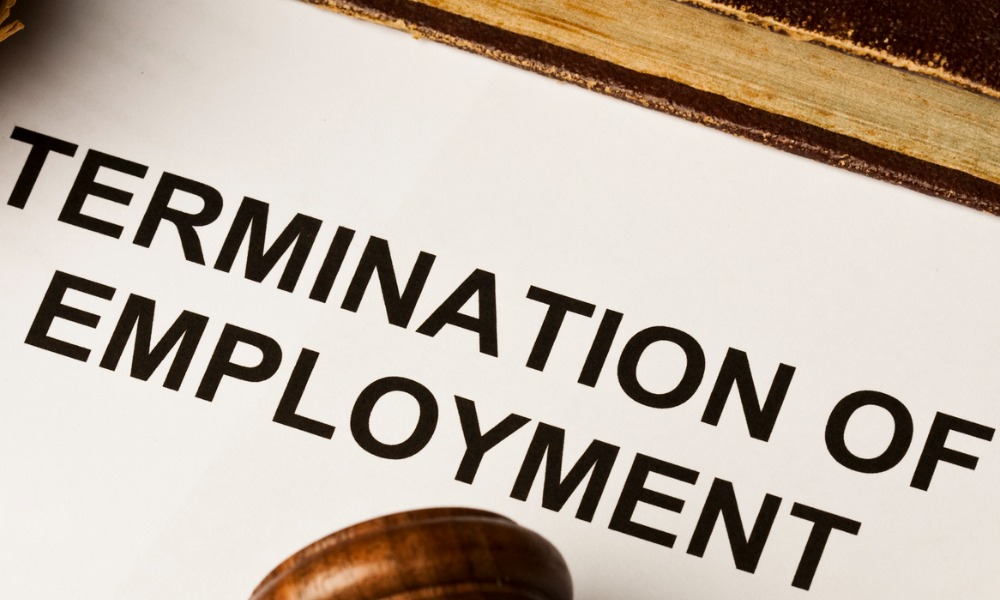
FWC decides true termination date amid conflicting accounts

The Fair Work Commission (FWC) recently dealt with a general protections dismissal dispute application filed by a worker under section 365 of the Fair Work Act 2009 (Cth).
The central issue in the case was whether the worker's application was filed within the mandatory 21-day period following the dismissal taking effect. The resolution of this question was crucial, as it would determine the validity of the worker's application.
The case presented two conflicting narratives regarding the dismissal date. The worker maintained that her dismissal took effect on 11 April 2024, when she received an email with a termination letter attached.
Conversely, the employer argued that the dismissal occurred on 9 April 2024 during a face-to-face meeting and that the email sent on 11 April 2024 merely served as a confirmation and record of the earlier dismissal.
Background and Context
The distinction between an oral termination and a written confirmation via email was a key factor in this case. According to the employer's evidence, the worker was dismissed on 9 April 2024 during a meeting at the workplace, where she was provided with warning letters and a termination letter.
The employer asserted that the email sent on 11 April 2024 was simply to maintain a record and paper trail of the dismissal that had already taken place.
However, the worker presented a different account of the events. She claimed that she was not present at the workplace on 9 April 2024 due to an injury and had attended a doctor's appointment that day.
The worker maintained that she had no communication with the employer on 9 April and only became aware of her dismissal upon receiving the email on 11 April 2024.
The parties’ arguments
During the hearing, the employer submitted that the worker's dismissal was communicated orally on 9 April 2024, with the email sent on 11 April 2024 serving as a confirmation.
The employer argued that the dismissal took effect on the earlier date, potentially rendering the worker's application out of time.
In contrast, the worker contended that she had no knowledge of her dismissal until receiving the email on 11 April 2024. She argued that the dismissal could not have taken effect until she was made aware of it, which occurred when she read the email and the attached termination letter.
The evidence presented
The FWC examined the evidence presented by both parties, focusing on the emails exchanged and the termination letter. The Commission noted that two emails were sent by the employer on 11 April 2024.
The first email, sent at 7:01 am, mentioned a customer complaint and stated that "further action" would be taken. The second email, sent at 7:21 am, included the termination letter dated 9 April 2024.
The Commission found it "somewhat implausible that an email advising of impending 'further action' would be sent at 7.01am on 11 April if termination had been notified two days earlier."
Moreover, the termination email did not reference any earlier discussion about the dismissal, unlike a previous warning letter sent by the employer.
The FWC’s findings
After considering the evidence, the FWC determined that the dismissal took effect on 11 April 2024, when the worker read the email and the attached termination letter.
The Commission concluded that "the evidence is not sufficient to find that there was oral communication of dismissal on 9 April 2024," despite the employer's claim that the decision was made that day and final entitlements were calculated the following day.
The FWC emphasised that "a dismissal does not take effect until it is communicated to the employee or communication of the fact of dismissal (such as by letter or electronic means) is readily accessible to the employee."
In this case, the Commission found that the dismissal was effectively communicated to the worker on 11 April 2024 via email.
As a result of the FWC's findings, the worker's application was considered to be filed within the required 21-day period, making it a valid application.
The Commission noted that even if the dismissal had been found to have taken effect on 9 April 2024, they would have exercised their discretion to extend the time limit under section 366(2) of the Fair Work Act, considering the worker's genuine attempts to seek advice and assistance within the prescribed period.
The FWC highlighted that the worker "made genuine attempts inside the 21-day period to seek advice and assistance about filing an in-time application."
Furthermore, the Commission noted that there was "no material prejudice to the employer" and that "both parties agree that there is benefit in conciliation being conducted on the dispute." Consequently, it referred the matter to a private conference.
This decision underscores the importance of clear communication and documentation in dismissal proceedings. Employers should ensure that dismissals are communicated unambiguously and that written confirmation is provided promptly to avoid disputes regarding the effective date of termination.